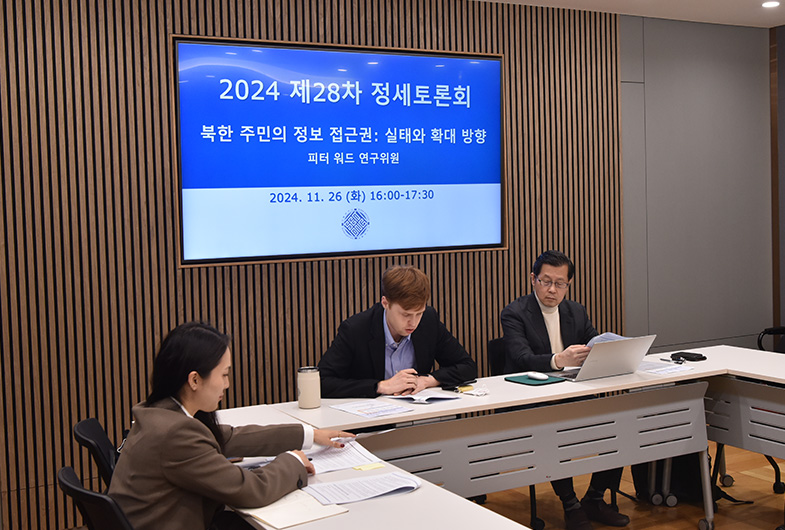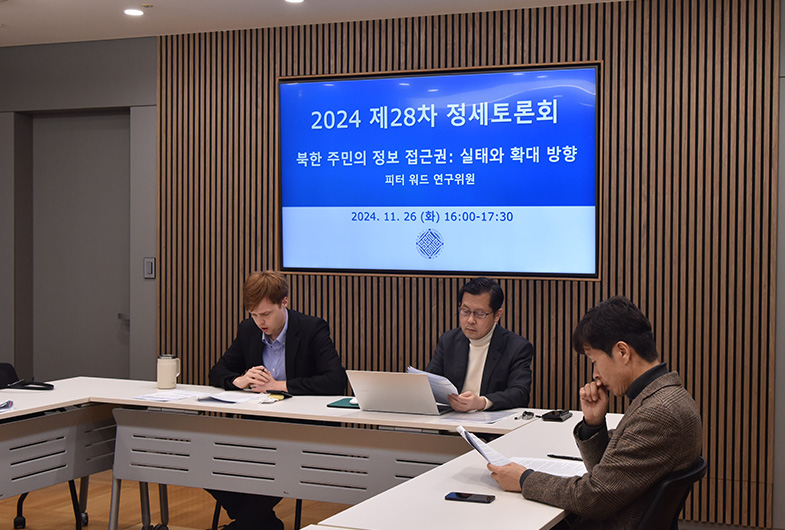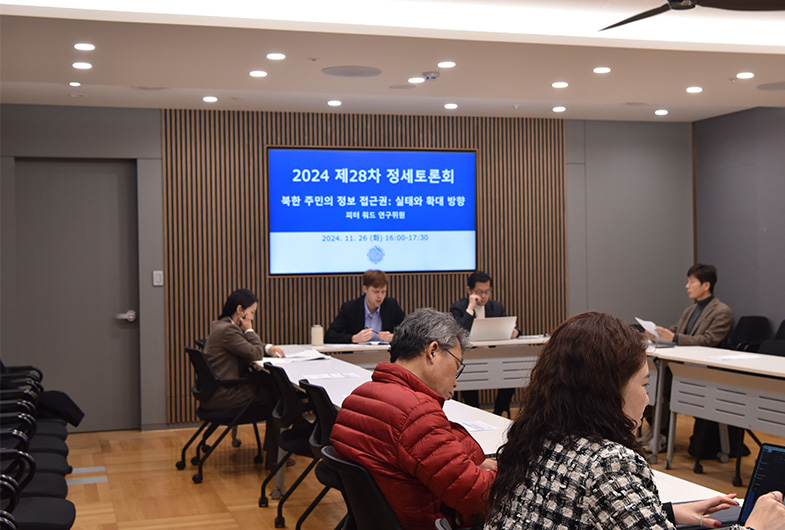On November 26th, Research Fellow Peter Ward presented "The right of access to information of North Koreans: Current Situation and Directions for Expansion" at the 28th Colloquium.
The discussion was moderated by Seong Chang Cheong, Director of the Center for Korean Peninsula Strategy.
On November 26th, Research Fellow Peter Ward presented "The Right of access to Information of North Koreans: Current Situation and Directions for Expansion" at the 28th Colloquium.
The discussion was moderated by Seong Chang Cheong, Director of the Center for Korean Peninsula Strategy.
The "Right of access to information" of North Korean citizens is a key aspect of the South Korean government's unification policy. It is crucial as part of the freedom of expression under international human rights law, especially in response to the severe suppression of North Koreans' access to information by the North Korean authorities. There is a need to address various issues to help prevent the information world of North Korean citizens from becoming more restricted.
According to data from North Korean defectors, the distribution of electronic devices for consuming foreign culture has led most defectors to have experienced foreign culture before escaping, with younger individuals showing more interest in Korean culture. It was also confirmed that analog methods remain effective. The North Korean regime has made considerable efforts to prevent the spread of unauthorized foreign content.
Entities providing funding for information delivery to North Koreans have fundamentally different goals and objectives, leading to programs that sometimes compete or even conflict with each other. However, due to the North Korean regime’s policies and political control systems, technical and operational challenges are widespread and complex. Activities aimed at expanding the right of access to information, particularly those involving digital methods, are significantly tied to cybersecurity issues, but research in this area is lacking, and there is minimal or no linkage between research communities and entities.
Therefore, it is considered more efficient to focus on expanding the information access rights of North Korean citizens without emphasizing unification at the international level. By alleviating technical and operational issues, addressing governance through international funding, expanding access to popular culture, and enhancing the capabilities of North Korean YouTubers, the international community’s awareness could be raised.


